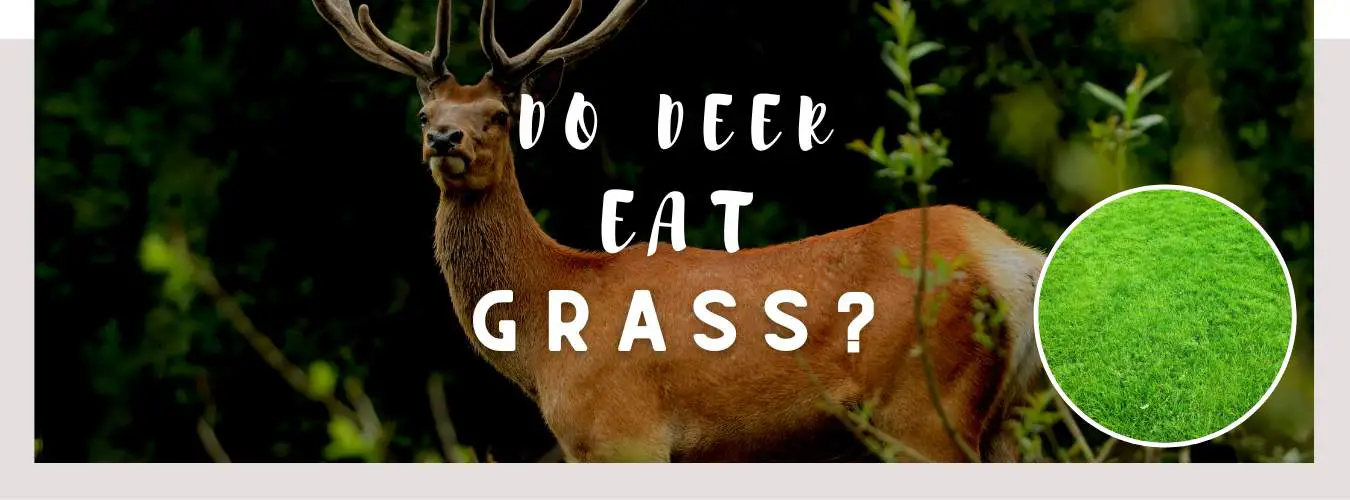
Deer do indeed eat grass, and it forms a significant part of their diet in many regions.
In fact, deer are herbivores, meaning that their diet consists exclusively of plants. Grasses, shrubs, and other types of vegetation are all common foods for deer, and they will often travel great distances in search of these food sources.
But what makes grass so appealing to deer? And how does their digestive system allow them to process such tough and fibrous food? Read on to learn more about the role of grass in a deer’s diet, and how it helps to sustain these majestic creatures in the wild.
The Nutritional Benefits of Grass for Deer
Grass is an important source of nutrition for deer because it provides them with a range of essential vitamins and minerals. This includes protein, fiber, and vitamins such as Vitamin C and Vitamin A.
Protein is particularly important for deer as it provides the building blocks for their muscles and other tissues. Fiber, on the other hand, is critical for maintaining the health of the deer’s digestive system.
Grasses also contain other nutrients such as calcium, phosphorus, and potassium, which are vital for the overall health of the deer. These minerals help to keep the deer’s bones strong, support healthy blood circulation, and regulate their metabolism.
You might also like: Do Deer Eat Honeysuckle?
The Adaptations of a Deer’s Digestive System

While grass might seem tough and difficult to digest, deer are equipped with a digestive system that allows them to extract all the nutrients they need from this food source.
One of the key adaptations of a deer’s digestive system is their four-chambered stomach. This unique stomach design allows deer to ferment the tough cellulose fibers in grass, breaking them down into simple sugars that can be absorbed by the body.
In addition to their four-chambered stomach, deer also have a large intestines which is much longer than that of most other mammals. This longer intestine provides additional time for the digestive process, giving the deer’s gut microbes more time to break down the tough cellulose fibers in grass.
The Importance of Diversity in a Deer’s Diet
While grass is an important part of a deer’s diet, it is also important for deer to eat a variety of other types of vegetation as well. This helps to ensure that they are getting a well-rounded diet that provides all the essential vitamins and minerals they need.
Deer will often feed on a variety of vegetation types depending on the season and the region. For example, in the summer, they might feed on leaves, flowers, and fruits, while in the winter, they might feed on twigs and bark.
By eating a diverse diet, deer are able to get the nutrients they need to survive and thrive, even in challenging environments. Whether it’s the harsh cold of winter or the dry heat of summer, deer are able to adapt to their environment and find the food they need to survive.
You might also like: Do Deer Eat Kale?
The Role of Grass in a Deer’s Ecosystem

In addition to providing food for deer, grass also plays an important role in the ecosystem as a whole. Grass provides a habitat for many other species, including small mammals, insects, and birds.
Furthermore, grass acts as a natural filter, removing pollutants and excess nutrients from the soil and water. This helps to maintain the overall health of the ecosystem and supports the survival of many other species, including deer.
Conclusion
In conclusion, deer do eat grass, and this type of vegetation forms a significant part of their diet in many regions. Grass provides deer with essential vitamins, minerals, and fiber, as well as being a source of protein. Their unique digestive system, with its four-chambered stomach and large intestine, allows them to break down and extract nutrients from the tough cellulose fibers in the grass.
However, it is also important for deer to eat a variety of other types of vegetation to ensure they are getting a well-rounded diet. Additionally, grass plays a crucial role in the ecosystem, providing a habitat for other species and helping to maintain the overall health of the environment.
So, next time you see a deer nibbling on a blade of grass, you’ll have a better understanding of why this food is so important to their survival and well-being.










